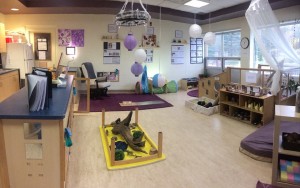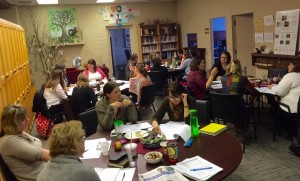On February 1, 2016, the Ministry of Education released its Phase Two Regulatory Proposal under the Child Care and Early Years Act. The proposed regulations will place younger children in larger groups, create more burden on Early Childhood Educators and program sustainability, and result in higher fees for parents. (Compass ELC estimates fee increases of 9% to 36%) Fewer licensed programs will offer infant care because financial viability will be at risk. The Early Years Policy Statement, How Does Learning Happen?, and the Child Care and Early Years Act set out a philosophy that is based on the best early learning and child care programs in the world. Children, families and educators in Ontario deserve a regulated licensing process that demonstrates respect for their competence and their capacity to learn. This document does not demonstrate this respect. Living into the principles and values laid out in the Ministry of Education’s own policy documents will take us to a higher level of quality and accountability in our early learning child care programs across Ontario. We are asking that the Ministry of Education withdraw the Phase Two Regulatory Proposal, commit to further consultation and research, and develop new regulations, consistent with its own policy documents.
Our leadership team discussing concerns & collaborating a written response to Phase Two Regulatory Proposal
 Compass Early Learning and Care (previously Kawartha Child Care Services), has a long history of pursuing excellence in early learning and care in our centres, our home child care program and our communities. Our goal has always been to rise above the barriers – to address them and move to a more thoughtful, reflective and resourceful space for children to grow and develop to the full extent of their ability. We know that when presented with beautiful spaces, activities that are engaging, challenging and fulfilling, and relationships based on mutual respect, collaboration and a sense of belonging, children are filled with a joy of learning. So, despite low wages, underfunding, and the lack of resources and support, we at Compass Early Learning and Care live our values every day. Our values have also guided our response to the proposed Phase Two Regulations.
Compass Early Learning and Care (previously Kawartha Child Care Services), has a long history of pursuing excellence in early learning and care in our centres, our home child care program and our communities. Our goal has always been to rise above the barriers – to address them and move to a more thoughtful, reflective and resourceful space for children to grow and develop to the full extent of their ability. We know that when presented with beautiful spaces, activities that are engaging, challenging and fulfilling, and relationships based on mutual respect, collaboration and a sense of belonging, children are filled with a joy of learning. So, despite low wages, underfunding, and the lack of resources and support, we at Compass Early Learning and Care live our values every day. Our values have also guided our response to the proposed Phase Two Regulations.
When we look back over our journey, we can see that we have made excellent progress towards our dream of quality programs for young children. The dream has been amended, and added to, and has evolved in many ways. But the results are revealing. Our programs have been cited in professional journals and publications. And the many requests for our study tours and institutes from across our province, across Canada, and across North America reinforce that we have indeed created something special. Martha Friendly, from the Child Care Resource and Research Unit, after visiting our programs stated, “These programs take us to a new quality level like what I have seen in some places in Europe, but rarely in Canada.” Former Assistant Deputy Minister of the Early Learning Division for the Ontario Ministry of Education, Jim Grieve when visiting our programs said, “The model that has been developed by Compass ELC is wonderfully effective for children, parents and staff. It is definitely a model that could be replicated in many communities across the province.” At Compass Early Learning and Care, we agree. We believe that we are not extraordinary, but that we are focused and creative and passionate about children’s learning and well-being. This is also true of the majority of early childhood educators and child care staff across our province. So, the question becomes, if it is possible here, why not there?
 New legislation and regulations for early learning and care offer an opportunity to make vast changes to the way that we plan, create and implement an early learning and child care system. This is our opportunity to implement administrative practices that create spaces for children where they have a sense of belonging, where families and children feel welcomed and valued, and where early childhood educators feel respected, and their professional integrity honoured. This is our opportunity to study and research successful, high quality programs, so that we can grow our system in a sustainable and meaningful way. Unfortunately, the Phase Two Regulatory Proposal is attempting to fix some of the problems with the present system, instead of fixing the system that is the real problem.
New legislation and regulations for early learning and care offer an opportunity to make vast changes to the way that we plan, create and implement an early learning and child care system. This is our opportunity to implement administrative practices that create spaces for children where they have a sense of belonging, where families and children feel welcomed and valued, and where early childhood educators feel respected, and their professional integrity honoured. This is our opportunity to study and research successful, high quality programs, so that we can grow our system in a sustainable and meaningful way. Unfortunately, the Phase Two Regulatory Proposal is attempting to fix some of the problems with the present system, instead of fixing the system that is the real problem.
We, at Compass Early Learning and Care recommend a different approach, which is consistent with the principles of How Does Learning Happen? This inquiry based approach was used to develop the Early Years and Child Care Act, 2014; let’s use the same approach to guide our regulations. How can we use the success stories in our province to inform and guide the evolution of a new reality for children and families in the early years of life? And how can we mirror the practices from these programs, to guide our engagement with educators and child care staff and administrators? And how can we use the research from our pedagogical document, How Does Learning Happen?, to guide our licensing process to achieve greater accountability, higher quality and healthier, more joyful spaces for children and their families?
We are asking the Ontario government to rethink the direction that has been revealed in these proposed regulations. We have gone too far down the road to Modernization of Child Care to take this wrong path – and this is the wrong path. We ask that you examine the conditions that create healthier, happier learning environments for children and base changes to our regulations on these conditions.
After child care was moved to the Ministry of Education’s portfolio in 2011, there were a number of positive steps for greater accountability and a higher standard of early learning and care for children and families in this province. Compass Early Learning and Care has been a champion of the legislative changes and policy directions of this government. The proposed Phase Two Regulations have, however, brought us to a different place. The bottom line is this – we do not support the policy directions set out in the Phase Two Regulatory Proposal. We believe it is antithetical to the philosophical intentions of The Child Care and Early Years Act, 2014, The Early Years Policy Framework and How Does Learning Happen?, our guiding pedagogy (curriculum) for early years.
Building a system of early learning and care, based on the principles set out in How Does Learning Happen? will take time and it will take a cultural shift – and it is possible. It is already happening throughout our province. Reflective practice, sense of belonging, relationships, and family engagement are all phrases that are being investigated and reflected upon every day in classrooms across the province. The recent proposed regulations have slowed that progress. Instead, our conversations are about the incapacity of educators, children and families to withstand these regulations. Higher fees, more babies in higher numbers, inadequate education and readiness are now the conversations that are prevalent. We can do better in Ontario. The vision set out in the Early Learning Policy Statement, How Does Learning Happen? and indeed, the Child Care and Early Years Act, are bold, beautiful statements that will lead us to the highest quality care in the world. The Phase Two Regulatory Proposal will not.
To read our complete response to the Ministry of Education and view the supporting documentation, please click HERE.
Sheila Olan-MacLean RECE
Executive Director, Compass Early Learning and Care
To read previously posted Compass ELC Blogs, please click HERE


